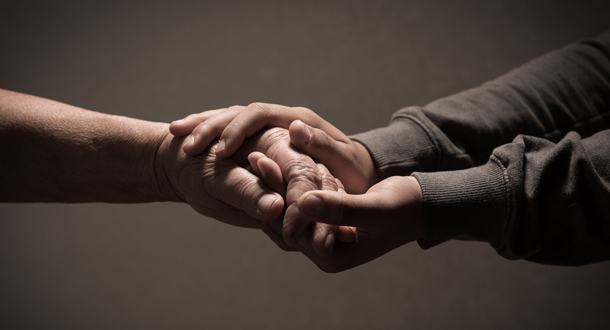 Scripture:
Scripture:
Reflection:
The themes of ‘crossing over’, coming to one’s ‘hometown’ and ‘paralysis and healing’ resonate throughout our gospel text. We might reflect a little more on each of them to enhance our own response to the word of God addressed to us today.
Crossing over was a constant theme in the life of Jesus. Of course, the reference is to the action of crossing over the Lake of Galilee as he so often did. This was a constant factor in the ministry of Jesus and a journey made possible by his calling of fishermen as part of the inner circle of disciples. Their boats enabled the work of Jesus to be amplified and ensured that Jesus could often go to places and situations of need without the longer journey around the lake on foot.
However, there can be a deeper meaning to the term ‘crossing over’. In a more symbolic understanding of this action and these words we might see that Jesus is always crossing boundaries and moving across various obstacles to reach out to and rescue those in need of him. He traverses such barriers to bring us healing and forgiveness. We can trust that the risen Lord is still doing this for us today.
Coming home is also a reality in the gospel reading today. Jesus returns to his hometown and to the people who have known him all their lives. But as we know too, his return was not always a time of welcome and joy – familiarity had bred a form of resistance in that people saw what they expected to see – a carpenter who had grown up in their midst. The fact that Jesus manifested the power of God, and used such power to heal and forgive, seems to escape their awareness. Alternately, perhaps they simply do not want to see this as it disturbs their preconceptions and world view. Some in today’s reading even suggest the Jesus is blaspheming rather than stopping to look and listen and thus recognise the power of God at work!
We can take great comfort in the thought that Jesus wants to be with us, to be ‘at home’ in our own lives and to dwell with us amid all that is happening to us. We are now his dwelling place, we the community of the church, his disciples who now make up his home.
Finally, we might see the contrast between paralysis and the freedom the man experiences because of the ministry of, Jesus. We note that the scene is one of physical healing, but the actions of Jesus also direct our attention to the deep spiritual healing that is also taking place. He heals the man of sin, but also sets him free to walk again.
Here we might reflect on the power of sin to hold us down, to paralyse us and to prevent us from reaching out to others or to act with selflessness. Sin turns us back on ourselves and not only seeks to seduce us away from the light, but to prevent us moving again towards the light! In this sense sin – selfishness unrestrained – gradually imprisons us and ironically restraints us! This is a kind of paralysis. The healing that Jesus brings about for this man is effective at both physical and spiritual levels; but it is a clear sign to us that we can have great confidence that healing and forgiveness await us at any and every point of our lives. Nothing can separate us from the love of God. Jesus’ whole life bears witness to this truth.
Like the crowds let us respond to the Lord with genuine gratitude for such a gift, and glorify God who has given us such a saviour.
Fr. Denis Travers, C.P., is a member of Holy Spirit Province, Australia.
